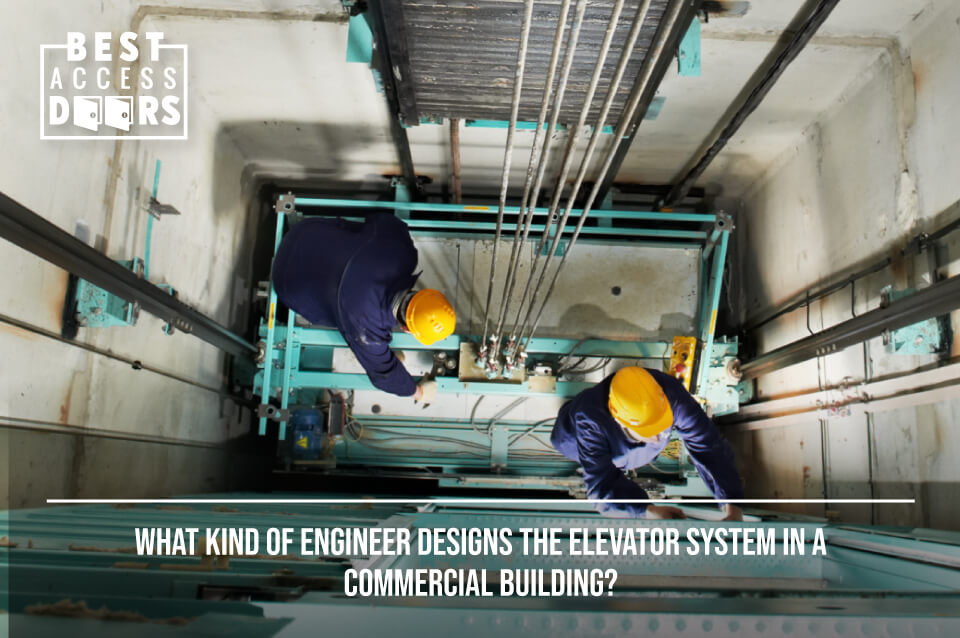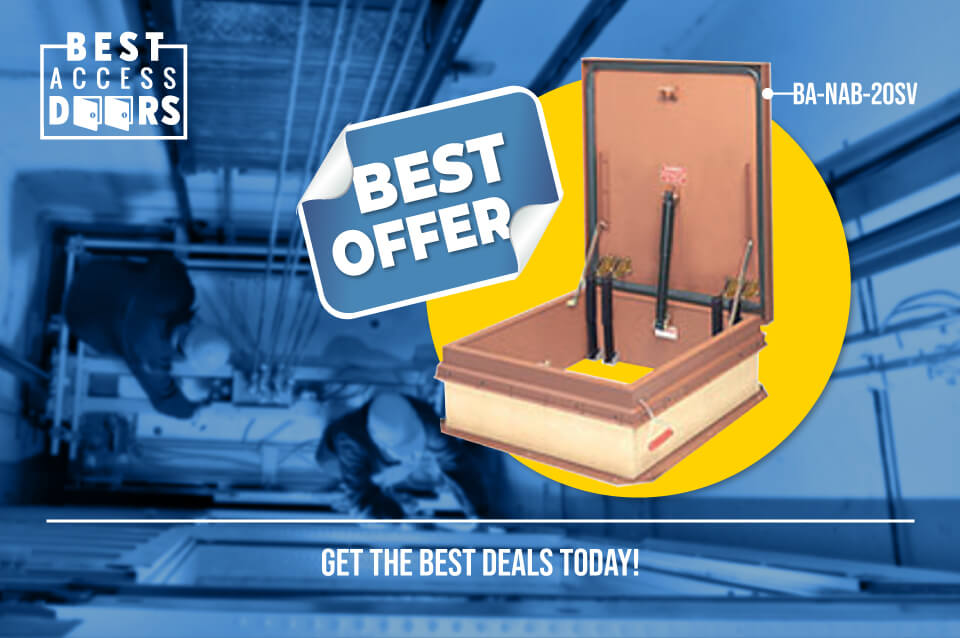What Kind of Engineer Designs the Elevator System in a Commercial Building?
Posted by Best Access Doors on 21st Jun 2023
There are various types of specializations in engineering that you can accomplish in the field of commercial construction. If you want to know your way around elevators, you should pursue an elevator or mechanical engineering career. But if you're a building owner looking for the best person to take care of your elevator system, this article will tell you what you need to know.
What is an Elevator Engineer?
An elevator engineer is a trained personnel that can help maintain, repair, and install elevator systems in your building. They collaborate closely with architects and other construction professionals to integrate elevator or escalator units in various settings. Their duties include:
- Provide installation and repair services.
- Assemble and maintain mechanical components such as elevator car, machine driver, overspeed governor, shaft, control panels, etc.
- Ensure proper alignment or orientation of the elevator unit.
- Service escalators and moving walkways
- Oversee and understand electrical components such as the brake and motor.
To be an elevator engineer, you must pursue the relevant college course, apprenticeship, and some states that require a license or certification.
Why You Need to Hire an Elevator Engineer
Maintaining your commercial property can take time and effort. There are various sectors in your business that you need to oversee and to help you ensure that all is in order, you need to hire a professional elevator engineer. To help you decide, here are some of their primary responsibilities:
Plan the Elevator Car
Mechanical engineers use different methods to meet each client's needs regarding building codes, efficiency, and safety. In the planning and designing stage, mechanical engineers consider the materials and elevator access in building a reliable, long-lasting elevator system to prevent any elevator-related emergencies and injuries.
In addition, mechanical engineers must also design elevator cars to be more inclusive and accessible. Installing braille buttons, audible announcements, and wheelchair ramps is a great help to ensure that all passengers can comfortably use and access the elevator regardless of their physical abilities.
Design the Elevator's Hoist System
The elevator's hoist system is essential as it is responsible for lifting and lowering the elevator cars between floors. Its set of reliable components, which include the electric motor, gearbox, sheave, steel cable, and other safety features, make the elevator highly functional and safe to use.
Elevator engineers thoroughly determine the weight of the elevator car and the average load of passengers, equipment, or both before designing the hoisting system to safely transport and maintain the elevator's speed when transporting the transport goods, tools, equipment, and people.
They also consider the building's physical constraints and the desired performance characteristic of the elevator. Most engineers nowadays also use computer simulations to view how the model works and any possible technical issues that may arise. This method allows them to optimize the design while ensuring the output follows and meets the required safety standards.
Establish Safety Features
Elevators in commercial buildings need various safety features to ensure the user's safety. Guarantee that the door interlock system keeps the elevator car's door fully closed until it reaches the landing floor, preventing the user from having elevator accidents or falling into the elevator shaft.
Another safety measure that every elevator engineer must consider is the overspeed governor, which helps the elevator system control its speed. When it may go beyond its rate, or there are emergencies, service personnel, and passengers may stop the elevator by activating the emergency stop switch. Along with it is a safety brake that prevents the elevator from directly falling to the ground when the cable or the system fails.
Install a Fire-Rated Smoke Vent
It would help if you considered installing a smoke vent in an elevator unit's dedicated machine room above or below the elevator shaft. This area contains the machinery, control panels, internal components, and where you can install your fire-rated smoke vent.
If you need a reliable and suitable smoke vent unit to support your elevator unit's fire-rated features, choose the BA-NB-20SV Single-Leaf Automatic Smoke Vent. Automatic smoke vents aid Firefighters in bringing a fire under control by removing smoke, heat and gasses from a burning building.
Vents are critical in the application of elevators, as they provide the necessary ventilation requirements outlined by the International Building Code (IBC 3004.2) with the capability to fit and install the unit above or within the immediate proximity of elevator hoistways. The BA-NB-20SV vent hatch allows for the safe and efficient distribution of toxic gases and smoke fumes.
Conduct Tests and Inspections
An elevator mechanical engineer also thoroughly checks the overall functionality and efficiency of the elevator system to guarantee that it can carry and transport passengers safely and securely to the next floor. Also, site visits and inspections are essential to determine the best location for the elevator installation.
You must also double-check all the safety features, electrical, mechanical, and control systems to ensure the safety of everyone who rides the elevator. A routine check is also part of your responsibility as a mechanical engineer to ensure all its features are working and repair and replace those components that are faulty.
Design for Comfort, Build for Safety!
A mechanical engineer designs the elevator system in a commercial building following the unwritten rule that comfort goes hand-in-hand with safety and security. It covers the system's design to protect its cables and wires from unauthorized access and prevent accidents.
Get the Best Deals Today!
Reach us and learn more about our access doors how you can strategically install our doors on your next project. Call our product experts today at 1-888-915-3834. If you have the materials list with measurements, you can drop a quick custom quote request and get it back in 30 minutes!
Share our story - get our 2024 Catalog for FREE!


